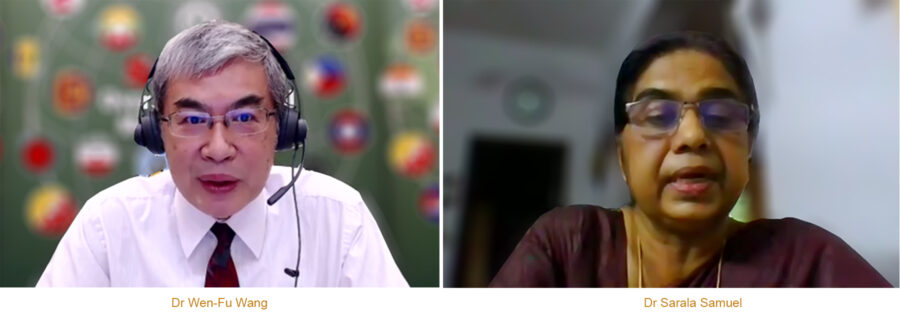Physical health is foundational to meeting emotional, social, intellectual, and spiritual needs, affirm experts of modern and traditional medicines at CCA’s Symposium

Health and wellness offer a clear path towards healthy aging, and physical health is foundational to meeting emotional, social, intellectual, and spiritual needs, affirmed experts of modern and traditional medicines at the CCA’s online Symposium on ‘Family Life and Family Values: Transition from Tradition to Modernity’.
The three-day event, focused on the challenges to family life and family values, addressed the impact of changing healthcare on family in tradition and modernity.
Health and wellness offer a clear path towards healthy aging because it recognises that building and maintaining physical health is not an end unto itself. Physical health is foundational to meeting emotional, social, intellectual, environmental, and spiritual needs of all members in a family, especially the elderly. This was emphasised by two speakers who deal with traditional and modern medicines.
Dr Wen-Fu Wang, a neurologist at Changhua Christian Hospital in Taiwan, in his presentation on ‘Healthcare for the elderly and advanced medical care’ shared the best practices followed in his medical centre for addressing the health and wellness of the aged.
Dr Wang emphasised the necessity of comprehensive long-term care systems that would engage hospitals and churches in strategic partnerships to cater to the critical needs of the elderly populace. Hospitals, especially Christian hospitals, had the mission to provide health promotion programmes and case management for elderly patients.
The Director of the Long-term Care Centre and Dementia Centre of Taiwan’s leading Christian hospital, Dr Wen-Fu Wang, further added that community members must be actively engaged in looking out for the elderly, as frailty and dementia could be prevented through early detection and aggressive intervention.
Dr Sarala Samuel, Senior General Manager of India’s leading Kerala Ayurveda Pharmaceuticals, who is responsible for overseeing research and development, in her presentation on ‘Healthcare and Traditional Medical Care’, deliberated on the value and the effectiveness of traditional medicine and its extensive accounts of use and experiences from generation to generation in the Indian context.
A botanist specialised in medicinal plants, Dr Samuel shared several traditional medicinal practices in India and the scientific bases for the efficacy of traditional medicines that benefit the physical, physiological, sensorial, and spiritual health of all family members irrespective of their age.
While enlightening the participants on the ancient practices of Ayurveda, one of the world’s oldest holistic healing and healthy lifestyle systems that originated over 3,000 years ago, Dr Sarala Samuel, who has been heading a research team instrumental in developing more than fifty Ayurveda proprietary formulations, told the participants, “God has woven an intricate tapestry which is interdependent and co-dependent with nature.”
The Symposium will conclude on 5 August 2021, and the final round of presentations will include topics such as ‘Tradition and Values in Transition: Intergenerational relations with aged family members’ and ‘Churches’ role and engagement in accompanying families’.










